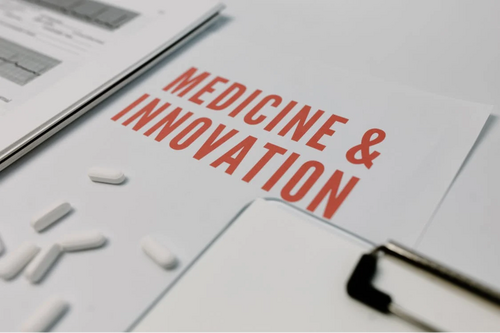
24 Dec The Trends Shaping the Pharmaceutical Sector Today

Photo by Tara Winstead from Pexels
1. The widespread use of machine learning
In recent years, we have seen the growing prevalence of generative artificial intelligence, as well as devices and platforms powered by machine learning. The healthcare sector isn’t spared from such disruptions as major brands and public institutions are harnessing AI to aid in conducting more accurate and ethical clinical tests and developing new drugs.
There’s no room for downplaying AI’s value to pharmaceutical research as it helps with analyzing molecular structures and patient data to come up with optimal formulations without compromising patient safety. While this would still require companies to tap into their existing knowledge bases, AI can help reduce the time it takes to formulate, test, and approve new products.
2. Regulatory and ethical challenges remain
The emergence of generative AI in medical research doesn’t come without resistance coming from regulators. Considering that the technology is still at its most primitive despite its impressive capabilities, there is a growing need to enforce regulations addressing AI’s limitations and overreliance. Calls for greater equity in the pharmaceutical sector are also growing as stakeholders demand more affordable products.
The recent assassination of United Health CEO Brian Thompson highlights inequities that are also observed in the pharmaceutical industry, where quality vaccines and life-saving medication remain inaccessible to most low- and middle-income nations. Aside from this, there is also the need for companies to do their part in environmental protection by using technologies such as an effluent decontamination system for compliance and investing in sustainable manufacturing processes.
3. Changing market dynamics
Pharmaceutical companies shouldn’t focus only on compliance and technological advancements to stay competitive. They must also observe the gradual shifts in consumer attitudes which are still significant factors in decision-making within the industry. Over the past years, there has been a greater emphasis on personalization brought on by telemedicine and the use of wearable devices among patients.
Companies must take these trends into account and develop products that align with the personal needs and preferences of every consumer. For now, most companies are doubling down on the use of biomarkers allowing for the production of drugs that respond accordingly to a patient’s genetic profile to lessen adverse effects and improve outcomes.
4. The fight against disinformation
With social media use becoming more widespread and misinformation has become a serious problem affecting drug policies and perceptions towards the pharmaceutical industry, stakeholders must address the problem head-on.
This would mean creating more opportunities to dispel fears of vaccine use and empowering pharmacists and physicians in educating patients and identifying as well as reporting fake products. Apart from that, there’s also a need for political action to enforce penalties against personalities and institutions that spread fake reports and cause mass panic.
Endnote
The pharmaceutical industry will continue to play a key role in public health. As another year closes, we can expect the sector to remain committed to building a more optimistic future for global healthcare.
———————————
The information on MedicalResearch.com is provided for educational purposes only, and is in no way intended to diagnose, cure, or treat any medical or other condition.
Some links are sponsored. Products and services are not warranted or endorsed.
Always seek the advice of your physician or other qualified health and ask your doctor any questions you may have regarding a medical condition. In addition to all other limitations and disclaimers in this agreement, service provider and its third party providers disclaim any liability or loss in connection with the content provided on this website.
Last Updated on December 24, 2024 by Marie Benz MD FAAD
